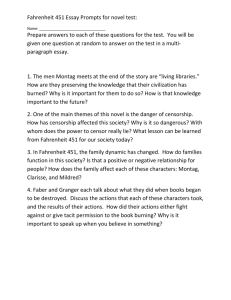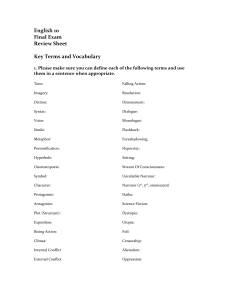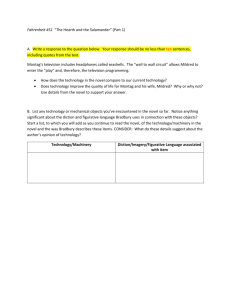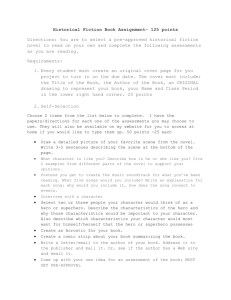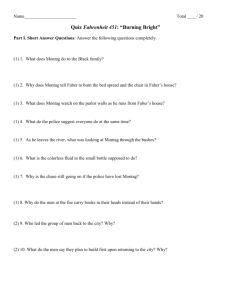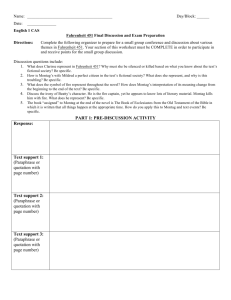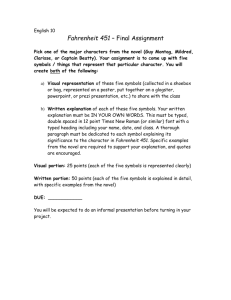“Sample”
advertisement
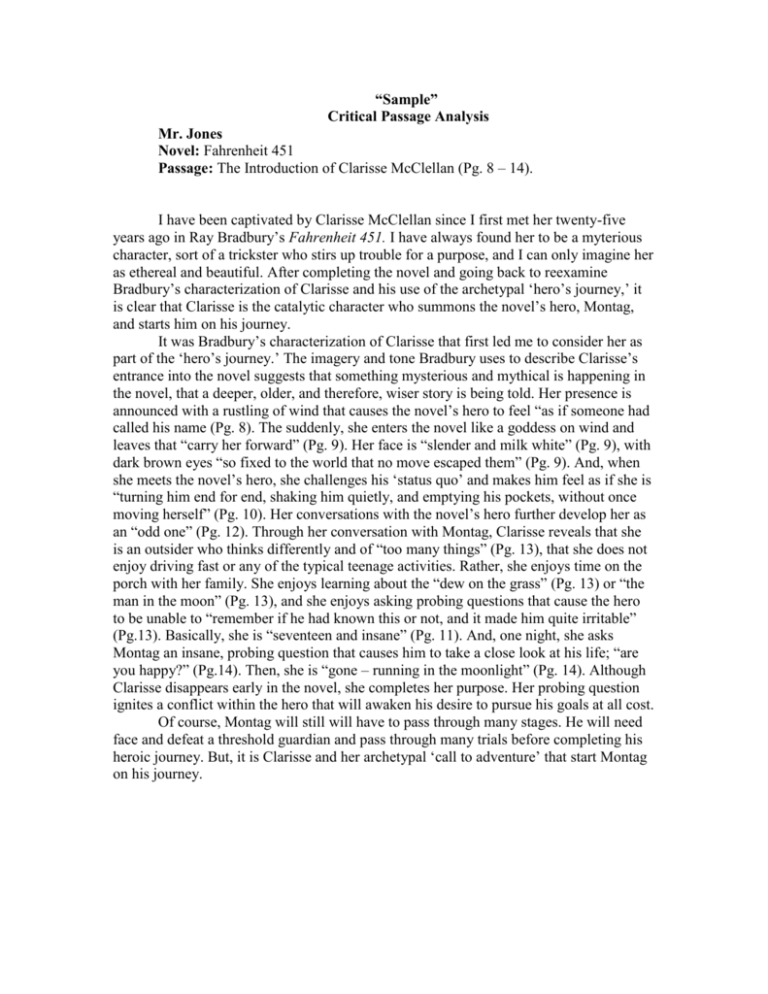
“Sample” Critical Passage Analysis Mr. Jones Novel: Fahrenheit 451 Passage: The Introduction of Clarisse McClellan (Pg. 8 – 14). I have been captivated by Clarisse McClellan since I first met her twenty-five years ago in Ray Bradbury’s Fahrenheit 451. I have always found her to be a myterious character, sort of a trickster who stirs up trouble for a purpose, and I can only imagine her as ethereal and beautiful. After completing the novel and going back to reexamine Bradbury’s characterization of Clarisse and his use of the archetypal ‘hero’s journey,’ it is clear that Clarisse is the catalytic character who summons the novel’s hero, Montag, and starts him on his journey. It was Bradbury’s characterization of Clarisse that first led me to consider her as part of the ‘hero’s journey.’ The imagery and tone Bradbury uses to describe Clarisse’s entrance into the novel suggests that something mysterious and mythical is happening in the novel, that a deeper, older, and therefore, wiser story is being told. Her presence is announced with a rustling of wind that causes the novel’s hero to feel “as if someone had called his name (Pg. 8). The suddenly, she enters the novel like a goddess on wind and leaves that “carry her forward” (Pg. 9). Her face is “slender and milk white” (Pg. 9), with dark brown eyes “so fixed to the world that no move escaped them” (Pg. 9). And, when she meets the novel’s hero, she challenges his ‘status quo’ and makes him feel as if she is “turning him end for end, shaking him quietly, and emptying his pockets, without once moving herself” (Pg. 10). Her conversations with the novel’s hero further develop her as an “odd one” (Pg. 12). Through her conversation with Montag, Clarisse reveals that she is an outsider who thinks differently and of “too many things” (Pg. 13), that she does not enjoy driving fast or any of the typical teenage activities. Rather, she enjoys time on the porch with her family. She enjoys learning about the “dew on the grass” (Pg. 13) or “the man in the moon” (Pg. 13), and she enjoys asking probing questions that cause the hero to be unable to “remember if he had known this or not, and it made him quite irritable” (Pg.13). Basically, she is “seventeen and insane” (Pg. 11). And, one night, she asks Montag an insane, probing question that causes him to take a close look at his life; “are you happy?” (Pg.14). Then, she is “gone – running in the moonlight” (Pg. 14). Although Clarisse disappears early in the novel, she completes her purpose. Her probing question ignites a conflict within the hero that will awaken his desire to pursue his goals at all cost. Of course, Montag will still will have to pass through many stages. He will need face and defeat a threshold guardian and pass through many trials before completing his heroic journey. But, it is Clarisse and her archetypal ‘call to adventure’ that start Montag on his journey.
